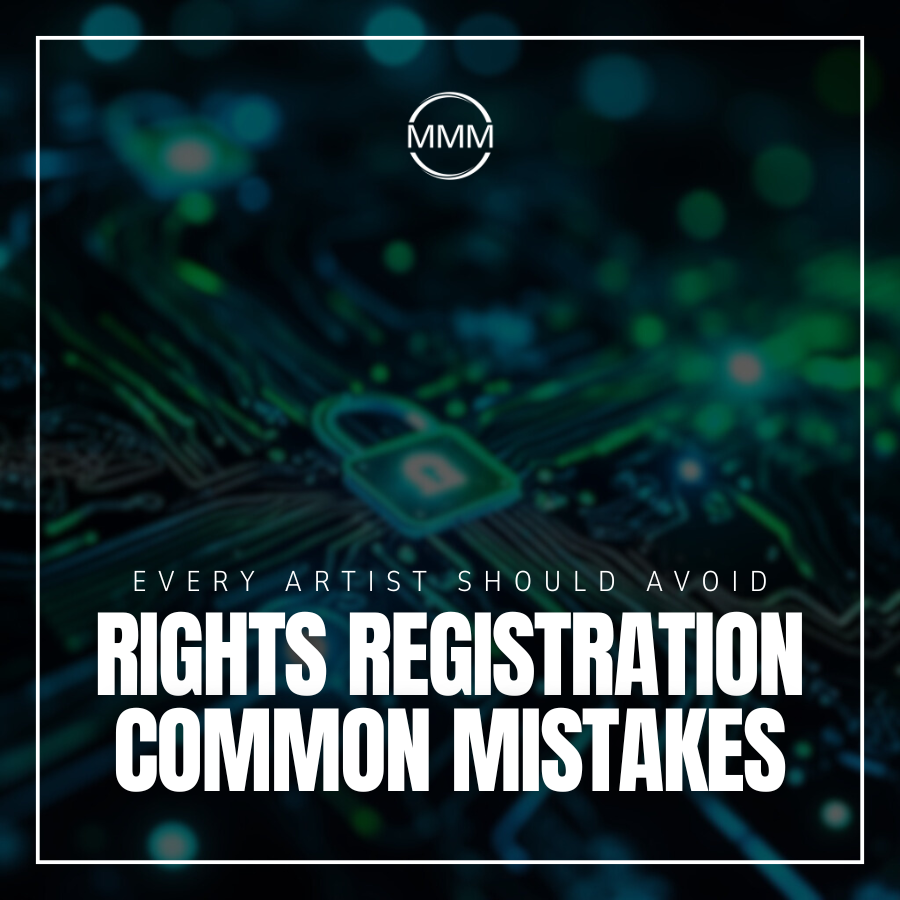Rights Registration Common Mistakes Every Artist Should Avoid
Rights registration is non-negotiable if you want to protect your music and ensure fair payment. However, many artists—especially independent ones—fall into rights registration common mistakes that cost them royalties and legal protection. By understanding and avoiding these mistakes, you can save time, money, and stress.

Rights Registration Common Mistakes Artists Must Avoid
Registering music rights is essential because it directly links your songs to you as the creator or rights holder. Otherwise, you could easily lose royalties, face ownership disputes, or even struggle later to prove your legal claim over your work.
Now, let’s break down the common mistakes artists make in rights registration and how you can avoid them.
1. Delaying Rights Registration
One of the biggest mistakes is waiting too long to register your music. If your song begins generating streams, downloads, or sync placements before you register it, you will likely lose those royalties forever.
Tip: Finalize your song and then register it immediately—even before the official release—to protect your royalties and secure ownership.
2. Rights Registration Common Mistakes With Metadata
Incorrect titles, misspelled names, wrong ISRC/ISWC codes, and missing co-writer information are common errors; as a result, these mistakes often push royalties to the wrong place or, even worse, leave them stuck in limbo.
Tip: Double-check all metadata—song title, writer splits, publisher details, ISRCs, and PRO information—before submitting.
3. Ignoring Global Rights Registration
Many artists register only with their local performing rights organization (PRO); however, when they overlook international collection societies, royalties from streams and performances abroad often fail to reach them.
Tip: Use global collection services or publishing administrators to cover international rights.
4. Overlooking Neighboring Rights
Neighboring rights cover income from the performance of sound recordings (e.g., radio, clubs, or public spaces). Because many indie artists forget to register these rights, they ultimately leave significant revenue on the table.
Tip: Register with organizations like SoundExchange (US) or your country’s neighboring rights society.
5. Rights Registration Common Mistakes in Co-Writer Agreements
Disputes often arise when multiple writers disagree on splits after a song has already been released. If splits aren’t properly documented, royalties can be delayed or withheld.
Tip: Always put co-writer agreements in writing before releasing the song.
6. Assuming Distribution Covers Rights Registration
Music distributors get your tracks on Spotify, Apple Music, and more—but they don’t cover all rights. Distribution doesn’t replace PRO registration, mechanical rights registration, or sync licensing.
Tip: Treat distribution and rights registration as two separate steps.
7. Not Updating Rights Registration After Changes
If ownership, splits, or publishing agreements change, failing to update your registration will create conflicts that block payments.
Tip: Keep your rights registrations updated whenever contracts, ownership, or publishing details shift.
Conclusion
Rights registration is more than paperwork—it’s the backbone of your career’s financial security. By avoiding common mistakes like delayed registration, metadata errors, and ignoring global rights, you ensure that your music is protected and your royalties flow smoothly.


No Comments